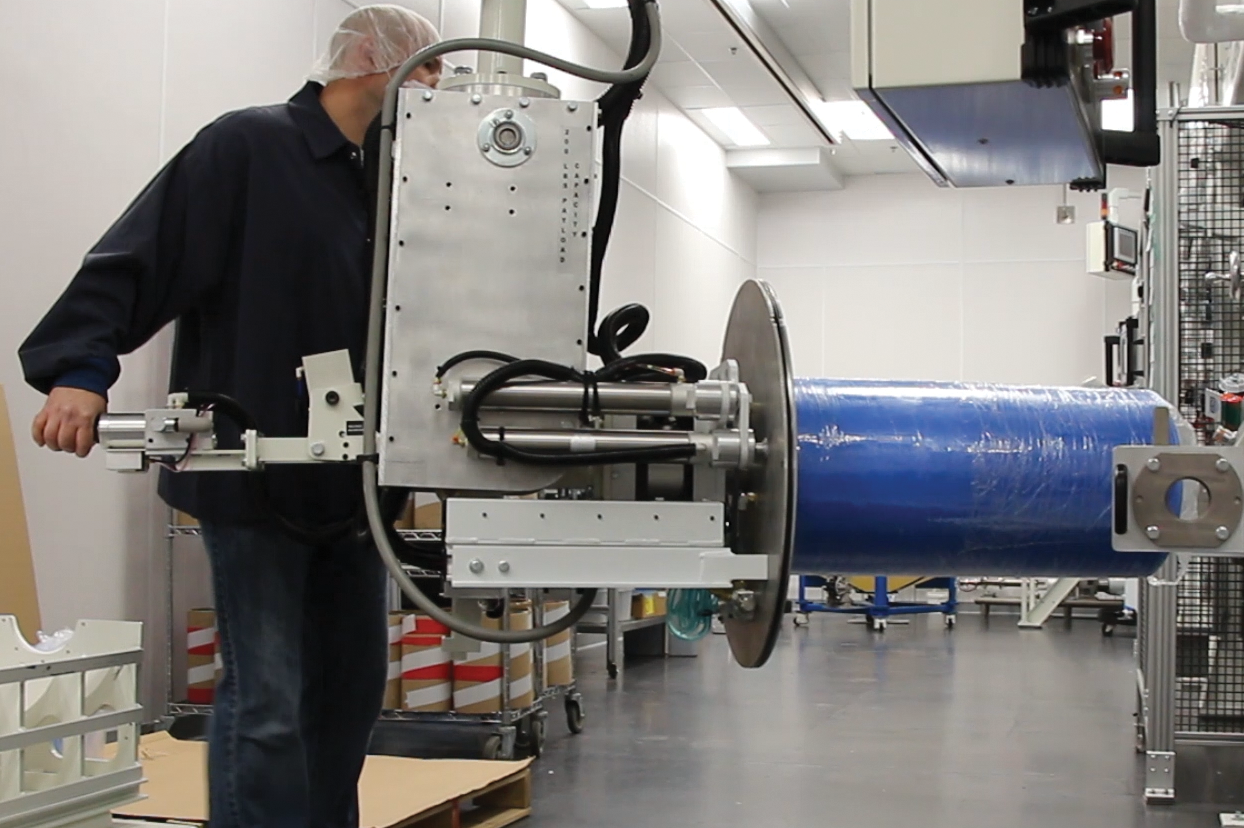December 13, 2016
Iowa manufacturer builds machine to prevent lifting injuries
It would be tough to overstate how highly Iowa-based manufacturer Katecho prioritizes its employees’ safety.
This maker of medical and cosmetic products has taken so many measures to keep workers safe that Occupational Safety and Health Administration officials have asked to showcase its facility to other businesses.
“You walk in the door and it’s clear that this place is special,” said SFM Loss Prevention Specialist Jason Clausen.
That’s why the company sprang into action after learning that a change intended to boost efficiency had drastically increased the amount of weight employees would have to lift.
Their solution: building a fully customized machine that would do the lifting for them.
‘We had to find a way’
One of the products Katecho manufactures is the gel pads that go between a patient suffering a cardiac arrest and an automated external defibrillator (AED).
To produce those pads, Katecho first makes large rolls of hydrogel. The hydrogel rolls start as huge rolls of raw components. These component rolls are brought in on pallets, lifted, moved 75 feet to a hydrogel coating machine and then lifted again onto spindles as high as 6 feet. After the coating process, the finished hydrogel rolls are removed from the machine, bagged, sealed and boxed.
Seeking to boost production and meet customer needs, the company began using wider rolls of the hydrogel, a change that increased the weight of the rolls from 40 to 350 pounds.
“We had to find a way to get these rolls up on the spindles without hurting people,” said Katecho Director of Manufacturing Chris Gunsaulus.
As a stopgap measure, they had their supplier shorten each component roll’s length for a 100-pound weight reduction. They also made it a requirement that no fewer than three people work together to lift the rolls. They tried purchasing a roll lifter made for just such a task, but it didn’t fit into the spaces where they needed to use it.
Out of options, they started drawing up specifications for a custom-made machine, and worked to build and install it with a northern Iowa company called Positech that specializes in industrial manipulators.
Side-benefit: Increased efficiency
The manipulator was strictly an investment in safety; however, improved efficiency has been a side-benefit. There’s no time wasted gathering everyone together and struggling to change rolls — a savings of up to two hours per day.
“It’s just made life a lot easier for us,” said machine operator Dan Chamberlain. “It’s definitely less strenuous on your muscles and your back.”
Despite the significant expense, Gunsaulus said they met no resistance from management in moving ahead with the plan to custom-build the machine.
“It’s really important that our people go home at night in the same state they came in,” he said. “People are here to earn a paycheck, not put their lives and limbs at risk.”
See video of the machine in action:





